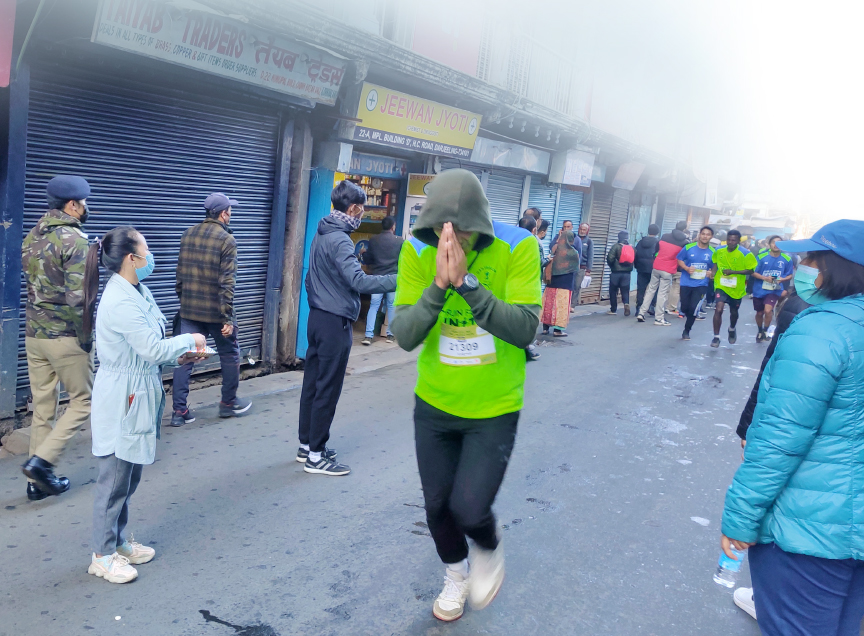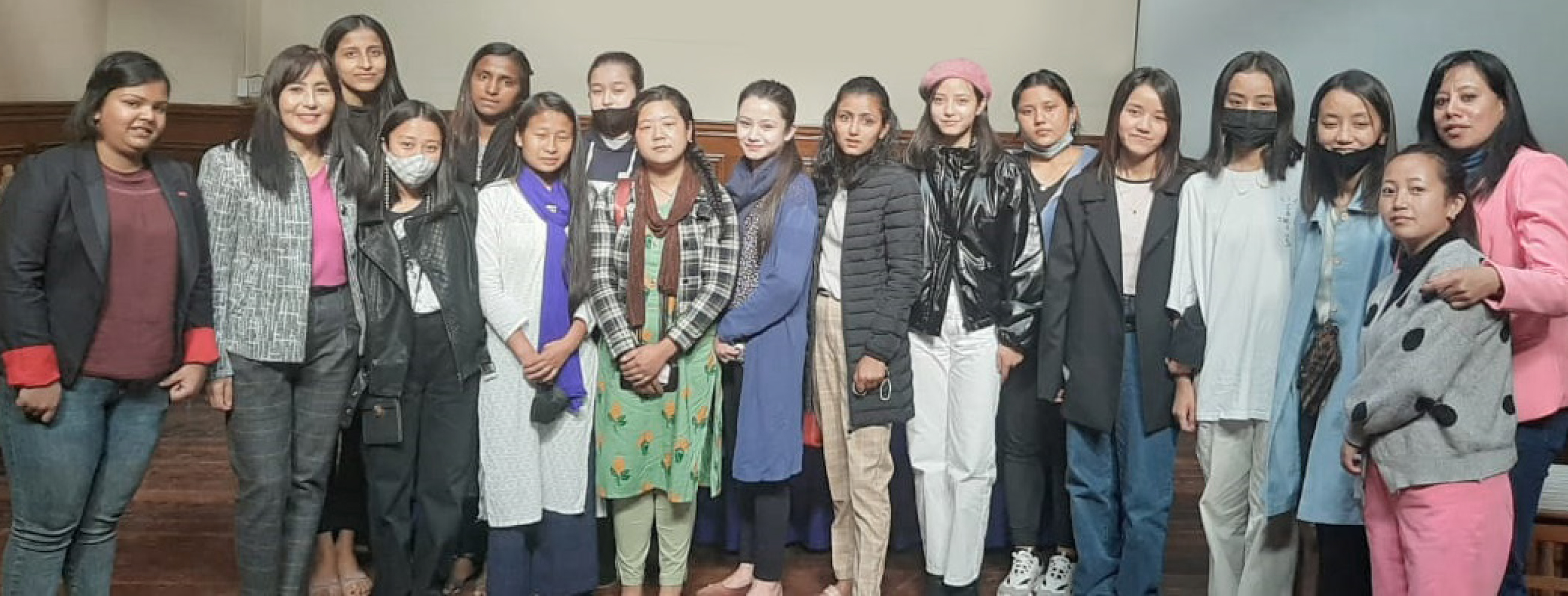A cleanliness drive in Darjeeling
Despite the hurdles posed by the Covid lockdown and its daily hassles, members of RAC St Joseph’s College, RID 3240, in Darjeeling spend at least three hours a week to chalk out the schedules of their service projects that range from distributing masks, sanitisers, creating awareness on the pandemic to conducting health camps, marathons and holding cleanliness drives with the help of their parent Rotary, RC Darjeeling. “Rotaract for us is the college-level version of Rotary. We are happy to be part of an initiative that is fostering service leaders,” says Vinayak, club president.

Recently, the club hosted a marathon in association with RAC Southfield College. The marathon was part of RC Darjeeling’s cleanliness drive and the Rotaract clubs “cleared tonnes of garbage that was littered from Sukhia Bazaar to Jorpokhri. It was a great experience to join the conservancy workers and help them with the clean-up,” he says. The marathon saw a participation of 200 Rotarians, Rotaractors and other volunteers, and “we set up a water station for the runners near the Rotary Tower in the heart of town and at the mid-way point of the marathon. We distributed water bottles to the runners.”
The club is looking forward to make its cleanliness drives more sustainable and efficient in the long run by involving the vendors and locals. “We want to shed more light on the 3Rs of waste management — Reduce, Recycle and Reuse. It is going to be a lot of effort but with the support of our parent club we are sure this is attainable.”
MHM workshops
Going beyond just creating awareness on MHM or installing a sanitary pad vending machine, “we aim to spread the knowledge for a sustainable change in hygiene management among women,” says Vinayak. The MHM programme, he says, is reaching out to college students in Darjeeling, “addressing the stigmas, taboos, and challenges associated with menstruation. But more importantly, helping them understand the biology behind it.”
Pemala Sherpa, who attended an MHM awareness session at the Southfield College, says “now we know how to use a sanitary napkin and what a menstrual cup is. We are also told about the psychological changes too. This camp connects the dots on menstrual health and mental wellness.” The MHM workshops also address the lack of access to sanitary products by rural women due to financial constraints. “Rotaractors talk to us about the broader issues such as the stigma and lack of education on female reproductive health in these hygiene sessions,” adds Pemala.

